Switzerland and UNRWA: timeline of a rocky relationship

As the United Nations relief agency for Palestinian refugees faces an existential crisis, Switzerland is questioning whether to continue funding the organisation – the latest chapter in the country’s turbulent history with the agency.
The future of UNRWA, which assists 5.9 million Palestinian refugees, is in doubt. In October, the Israeli parliament approved legislation banning it from operating in Gaza, the West Bank and East Jerusalem. Previously Israel claimed that several of the agency’s workers participated in the October 7, 2023, Hamas attacks against Israel, in which 1,200 people were killed.
After two inquiries – one findingExternal link possible links to the attack for nine staff and the other failing to get evidence to support Israel’s allegation – most major donors, with the exception of the United States, endedExternal link their temporary suspension of funding for UNRWA. Some, such as Spain and Qatar, even increased their donations. The agency, which also operates in Jordan, Syria and Lebanon, is struggling to meet an unprecedented level of humanitarian need in the region.
But Switzerland, the agency’s 12th-biggest donor according to 2023 figures, is now considering ending its contributions altogether.
The Alpine country has intensified its assistance for UNRWA gradually since its inception 75 years ago. Its donation, however, remains small compared to that from states such as Germany, and has been accompanied by both praise and criticism for the agency, a 2020 government report showsExternal link. Lawmakers in recent years have also increasingly questioned the level of Swiss support – with the foreign minister even casting doubt on the agency’s role.
Humble beginnings
May 1950 – UNRWA, the UN Relief and Works Agency for Palestine Refugees in the Near East, begins operations following a 1949 UN General Assembly resolution establishing an agency to deliver humanitarian aid and job programmes for Palestinians displaced after the 1948 Arab-Israeli War. In the early years, Swiss assistance is limited to supporting health-related projects in Lebanon and Jordan. Spending between 1958-1960 reaches CHF600,000 ($676,000).

1960s – The Swiss government tells parliament that UNRWA, despite its limited resources, is making a significant contribution to helping Palestinian refugees. In 1965, the government begins supporting education initiatives. The goal is to help young refugees to integrate in their host countries or to emigrate, given the bleak prospects for a political solution.
1970s – Switzerland makes an average annual contribution of CHF1 million to UNRWA, in addition to donating hundreds of tonnes of flour and powdered milk. But parliamentarians voice criticism and demand a solution to the refugee crisis, by way of encouraging integration in host states.
Aid that is ‘essentially political in nature’
1980s – Analysis by the federal authorities concludes that the agency is doing good work despite difficult conditions – and its perpetual lack of funds. But it also notes that the aid provided by UNRWA is essentially political in nature. Only a small minority of refugees, according to the report, are dependent on humanitarian aid under the terms set out in the Swiss law on foreign aid, and many refugees hold on to their UNRWA registration card above all to preserve their Palestinian identity. However, the report does not identify an alternative solution to continuing support for the agency.
1990s – Switzerland increases both its financial contribution – to around CHF10 million a year for the core budget and emergency appeals – and its political engagement with UNRWA, supporting greater cooperation between host states, donor countries and the agency.
2000s – Switzerland discusses reforms for UNRWA, including improving the efficiency of its operational structure and its capacity to react to crises in the region. It joins the agency’s advisory commission to assist the commissioner-general in their role. In 2015, Switzerland’s contribution to UNRWA’s core budget passes CHF20 million for the first time.
Swiss officials court controversy
2018 – After a visit to Jordan, Swiss Foreign Minister Ignazio Cassis says that as long as Palestinians remain in refugee camps, they can dream of returning home and that UNRWA “has become part of the problem”. He adds: “By supporting UNRWA, we keep the conflict alive. It’s a perverse logic.” His remarks spark outcry, particularly among left-leaning lawmakers, but Cassis says they have opened debate in Switzerland over the country’s role in supporting UNRWA. This comes as UNRWA’s biggest donor, the US, withdraws its contributions, leading several countries, including Switzerland, to make up some of the shortfall. A year earlier, Israeli Prime Minister Benjamin Netanyahu saidExternal link UNRWA “perpetuates the Palestinian refugee problem” and should be dismantled.
2019 – In July, Switzerland and other donor countries temporarily suspend funding to UNRWA after allegations of sexual impropriety, nepotism, discrimination and other abuses of power emerge under the management of Pierre Krähenbühl, a Swiss national appointed as the agency’s commissioner-general in 2014.

Krähenbühl resigns on November 6, alluding to political pressure, notably from the US, and what he calls a concerted effort to undermine the agency. An internal investigation clears him of fraud or misuse of UNRWA funds but points to management issues that need to be resolved.
2020 – Switzerland urges Philippe Lazzarini, the Swiss-Italian national now heading UNRWA, to “rapidly put in place” reforms, notably for greater transparency, supervision and control of the agency’s processes.
Swiss funding in doubt
December 2023 – Two months after the October 7 Hamas attacks on Israel, the Swiss House of Representatives approves removing annual UNRWA funding from the development aid budget. But the Senate reaches a compromise, which sees the overall budget for humanitarian aid cut by CHF10 million.
January 2024 – Following allegations by Israel that several UNRWA staff took part in the Hamas attacks, Switzerland withholds its 2024 contribution of CHF20 million ($22.4 million) until an investigation is completed.
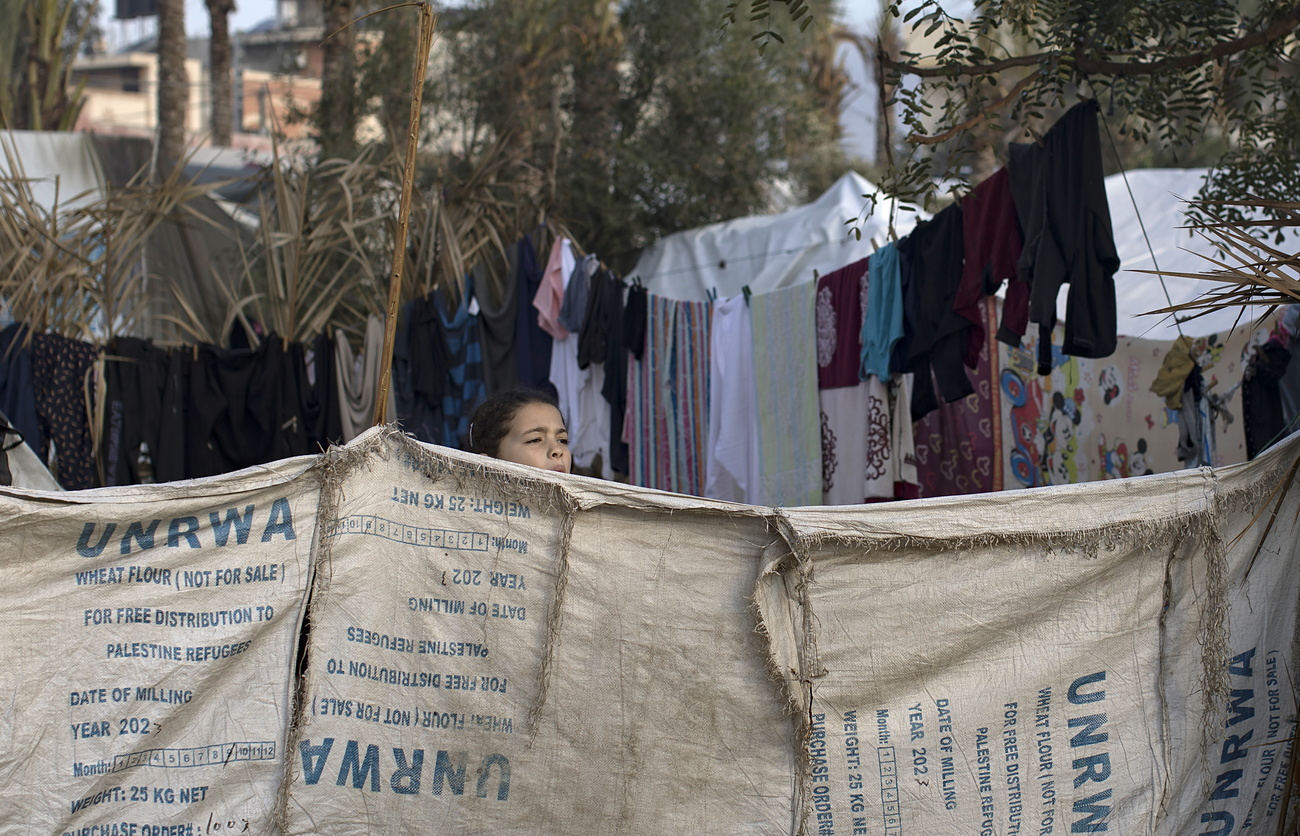
More
What are the allegations upending UNRWA’s aid efforts in Gaza?
May 2024 – The government decides to disburse half of the CHF20 million, to be used exclusively for urgent humanitarian needs in Gaza – where the death tollExternal link at this point is around 35,000 – following an independent inquiry into UNRWA by former French Foreign Minister Catherine Colonna. An internal investigation later findsExternal link possible links to the October 7 attack for nine employees, all of whom are fired.
September 2024 – The Swiss House of Representatives approves a proposal by David Zuberbühler of the right-wing Swiss People’s Party to end funding for UNRWA – by a 99-88 majority (and seven abstentions). The government announcesExternal link it will not hand out the remaining CHF10 million earmarked for the agency in 2024.
December 2024 – The House of Representatives approves another proposal by Zuberbühler to remove UNRWA funding from the development aid budget. The Senate, for its part, postpones a vote on ending funding to UNRWA while the foreign affairs committee holds hearings on the agency. The government will decide on any future funding once the debates in parliament conclude – likely in spring 2025.
Edited by Lindsey Johnstone/livm/ts
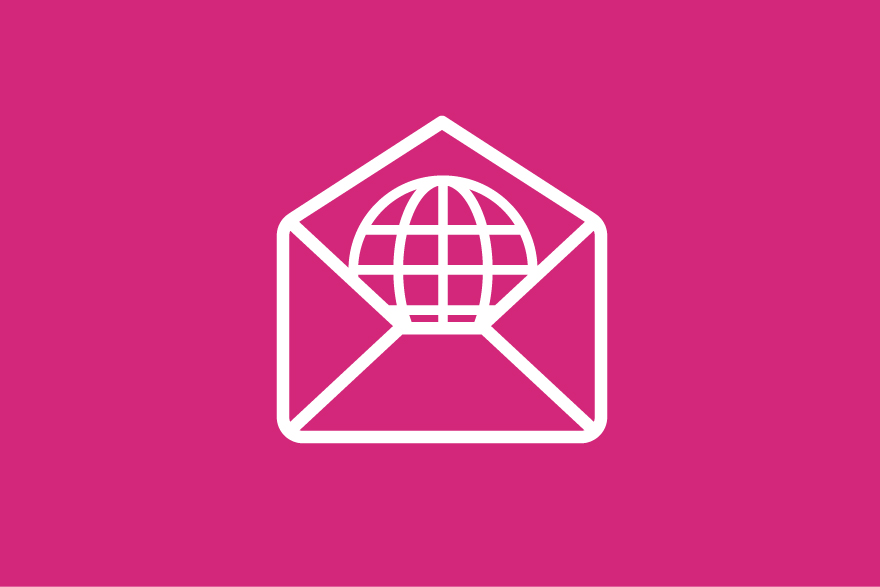
More
Our weekly newsletter on foreign affairs

In compliance with the JTI standards
More: SWI swissinfo.ch certified by the Journalism Trust Initiative










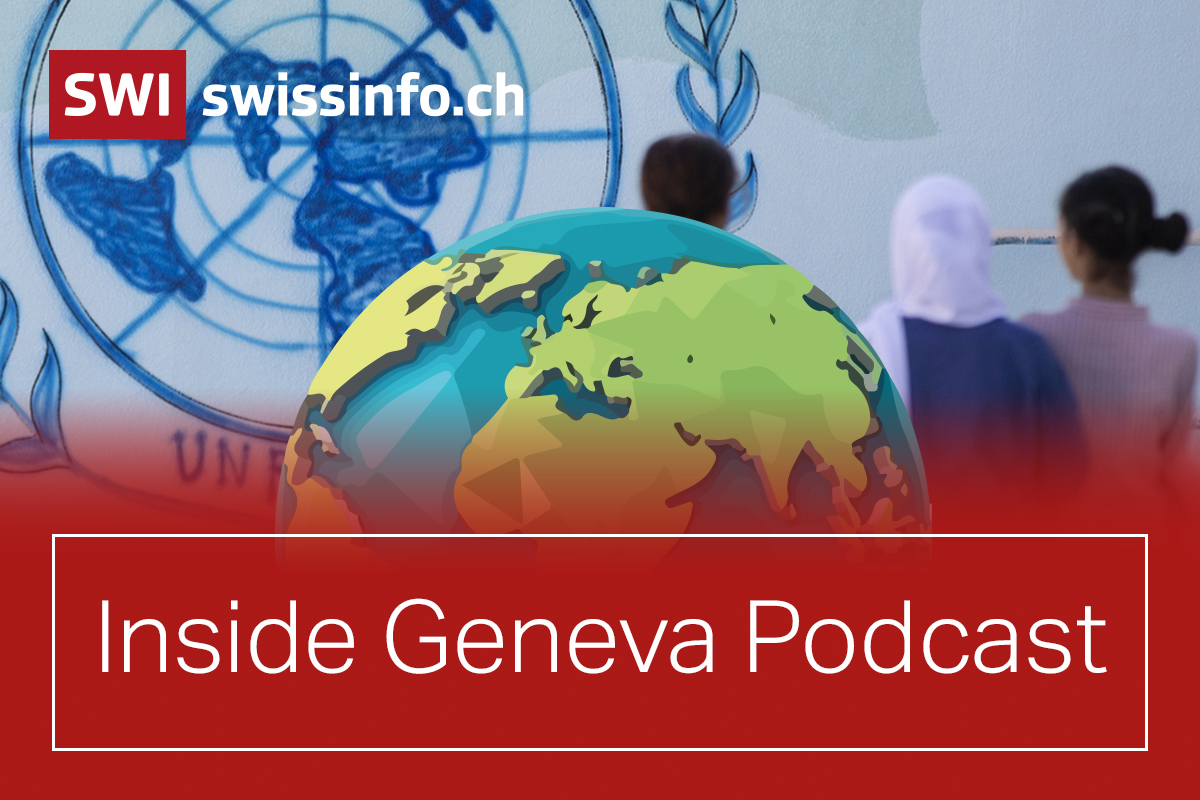
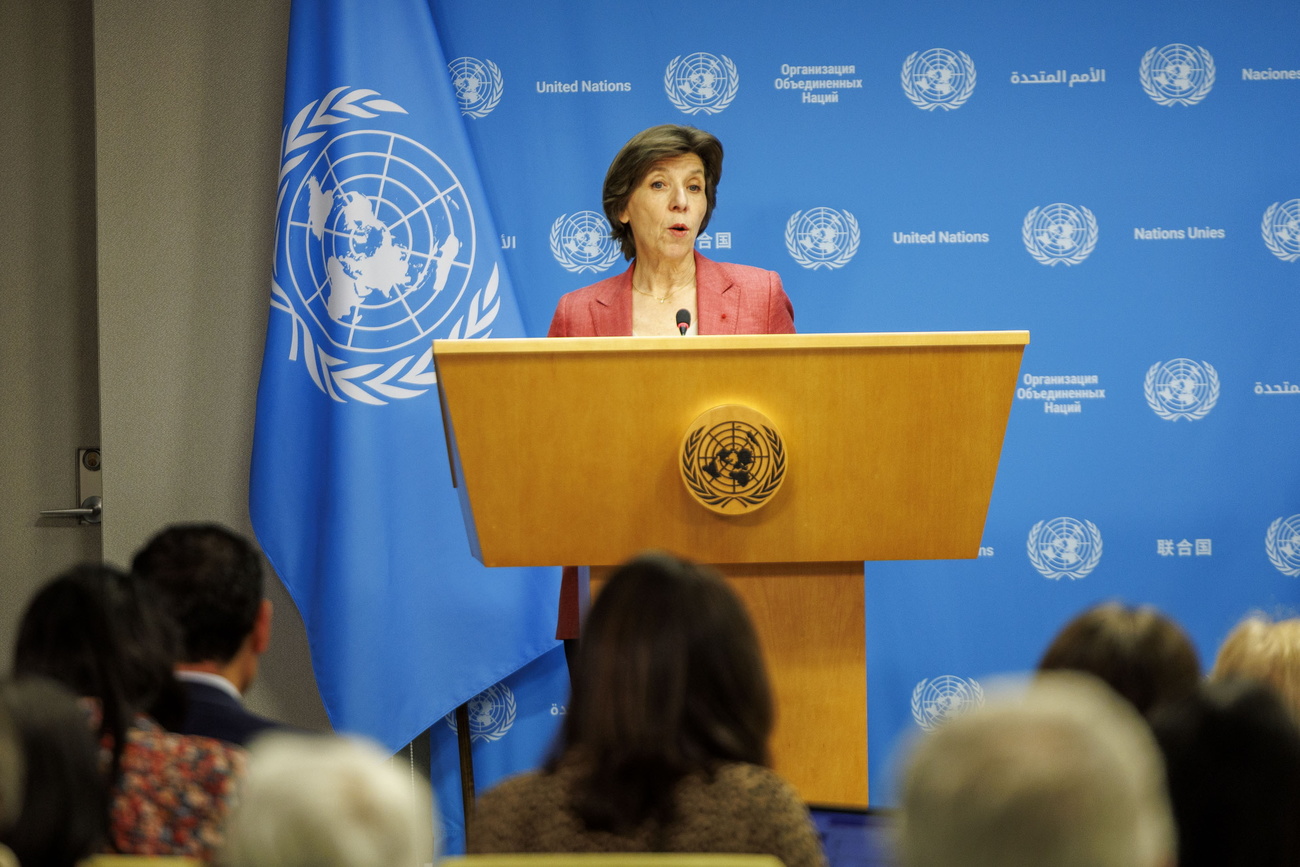
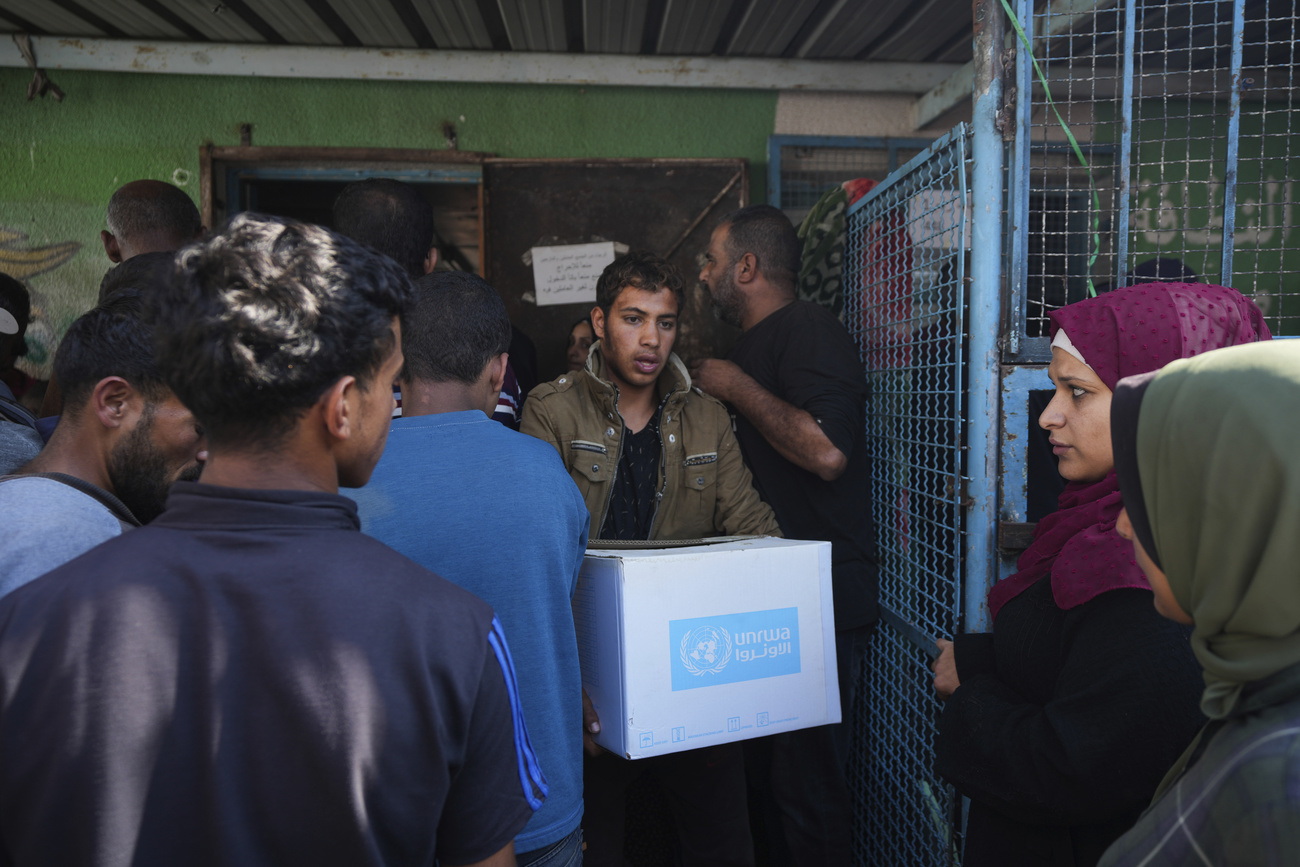
You can find an overview of ongoing debates with our journalists here . Please join us!
If you want to start a conversation about a topic raised in this article or want to report factual errors, email us at english@swissinfo.ch.